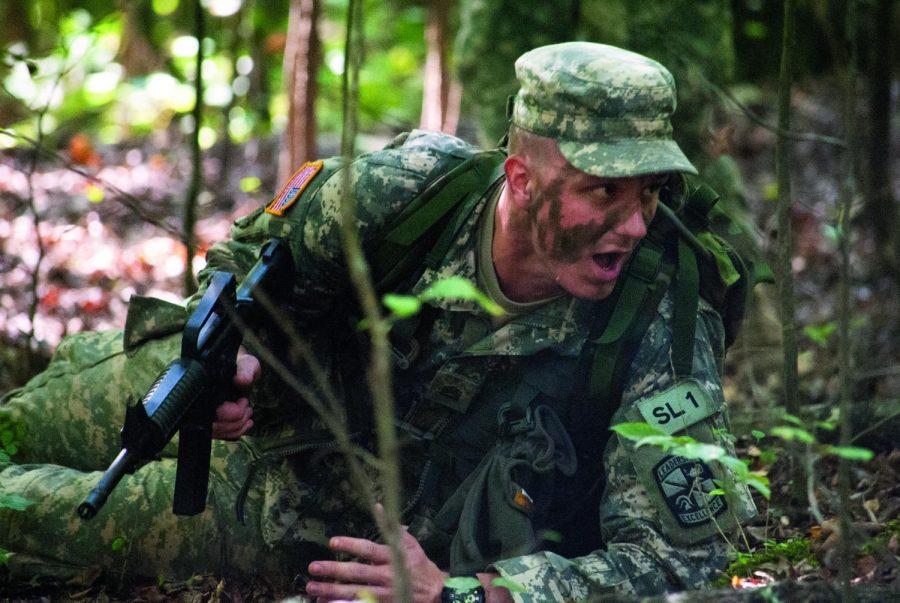Army places UNA ROTC program on 2-year probationary list
November 14, 2013
The university’s Reserve Officers’ Training Corps program will not be closing in 2015, as originally announced on Oct.2.
The ROTC program has been moved from the Army’s program closure list to a probation process, said Lt. Col Michael Snyder, director of ROTC.
According to a Nov. 6 statement released by the Department of the Army, “The Army has suspended the closure of 13 SROTC programs, plus their partnership and affiliated schools, and directed their immediate placement in a probationary status.
“The Army has also directed the review and revalidation (of) all program retention criteria by which the SROTC programs were recommended for closure. Once complete, the evaluation criteria will be used to reassess all SROTC programs nationwide.”
Snyder believes the initial closure announcement and the current probation are linked to the numbers of commissioned officers the program puts out each semester. Snyder has not yet received any word on what the Army’s new retention criteria will be, he said.
“ROTC exists in order to commission officers for our Army, so (the initial closure plan and probation) are related to that,” he said.
Upon hearing the news of the closure, the university’s administration and the region’s elected officials worked together to lobby for the program’s removal from the closure list, said President William Cale. Other universities were also involved in federal processes to keep their programs open, Cale said.
“There were a lot of meetings in Washington (and) our elected officials were involved in those discussions,” Cale said. “We’re pretty optimistic about what the Army has done because everyone believes that opens the door of opportunity for us. It was a good week for UNA and the ROTC program, I think.”
The Army is developing a formal 24-month program for schools to improve their performance that will involve evaluating the schools each year that they are in the program, the release said.
“I do know that they are going to look at us this year and examine our progress toward whatever the benchmarks are that they tell us,” Cale said. “Then they will decide whether to continue us on probationary status for a second year or whether they will continue to move us toward closure.
Cale believes the Army could contact university officials with the new criteria as early as this week, he said.
“I think we’re pretty optimistic that we will not face closure and will be able to make very good progress and ultimately probably increase a benchmark for the number of second lieutenants that we commission,” he said.
One concern the closure created for ROTC cadets was that the freshmen and sophomore cadets were not going to be able to become commissioned officers through the program, said Kelly Norton, a junior and ROTC cadet.
“Now we’re going to be able to help the freshmen like the seniors and juniors helped us when we were younger,” Norton said. “This program really teaches a lot and (the program’s faculty and staff) really care about us as cadets, individuals, and we’re like a family. Even though we kind of get annoyed by the younger people sometimes, we want them to be here.”
The freshmen and sophomore classes would be the most effected by the 2015 closing. Tyler Putt, a freshman cadet, was planning to transfer schools in order to participate in a program that could commission him as an officer.
“It basically put me in the position of either having to transfer or completely drop a program, but that was completely out of the question for me — I would have had to transfer,” Putt said. “I was looking into Alabama and Auburn, but God’s hand just helped. I’m definitely staying.”
Other programs from different universities reached out to Snyder to provide a place for the cadet’s to transfer when the closure was still happening, Snyder said.
Editor’s Note: Editor-in-Chief Corinne Beckinger contributed to the reporting of this story.


